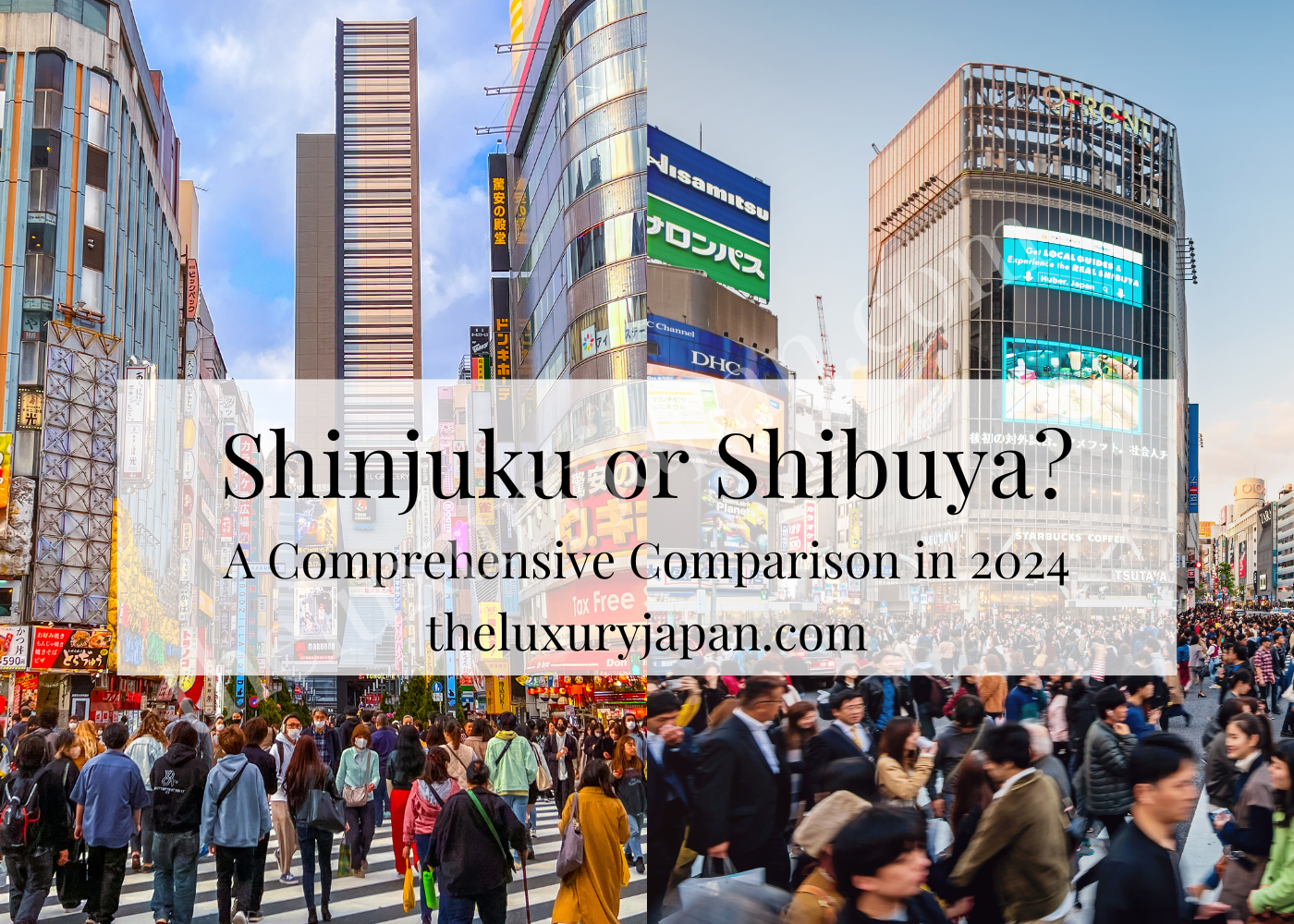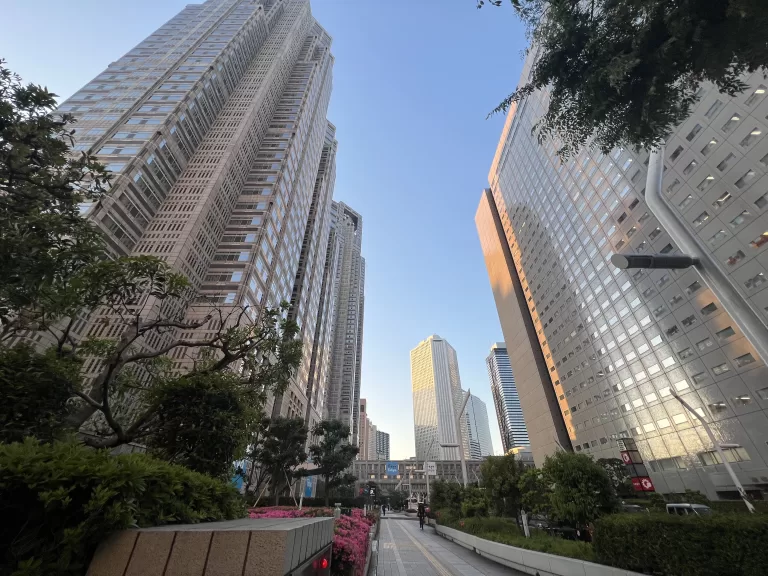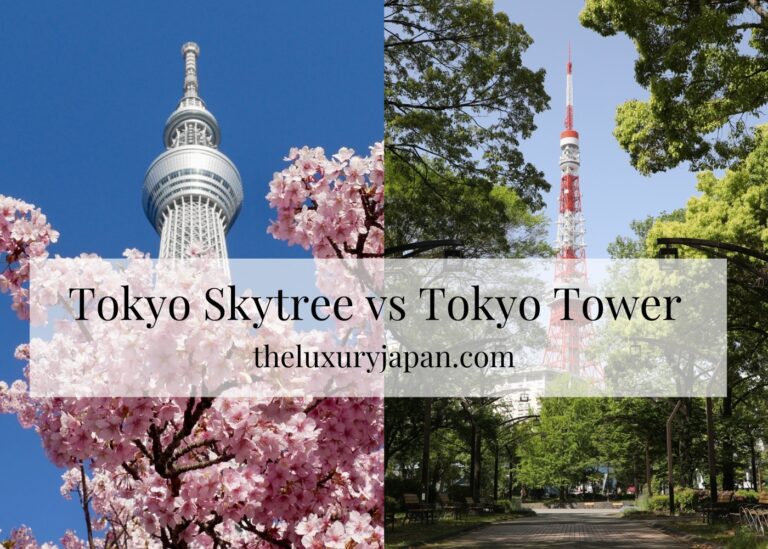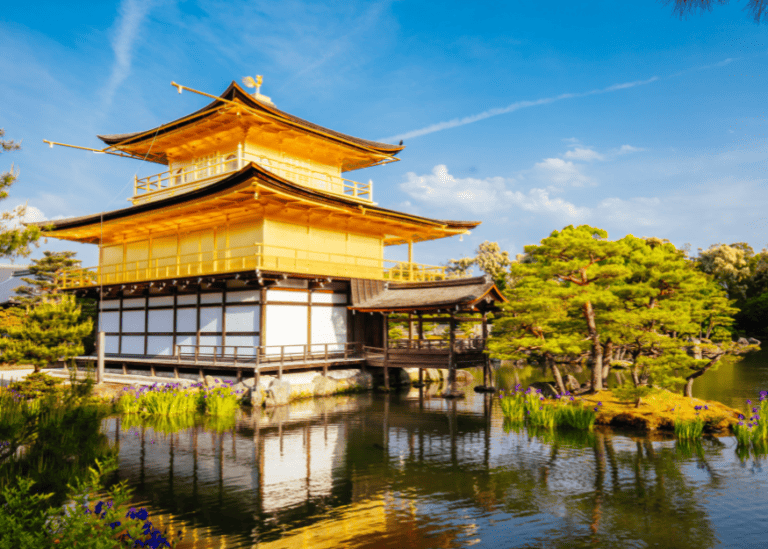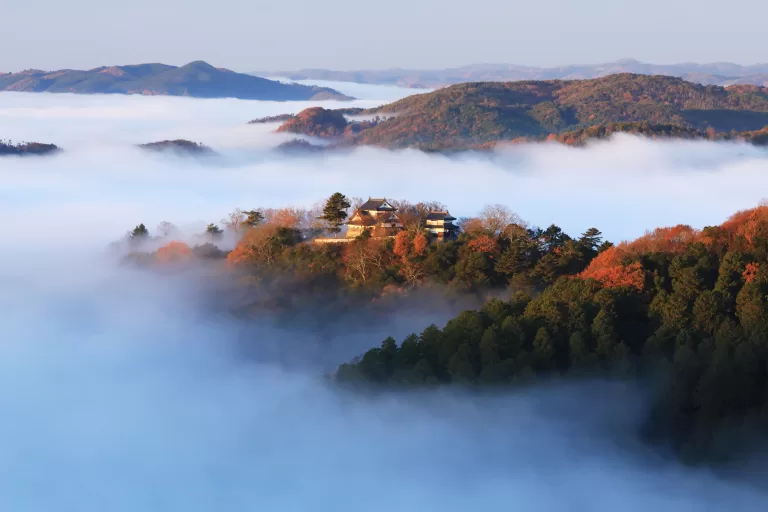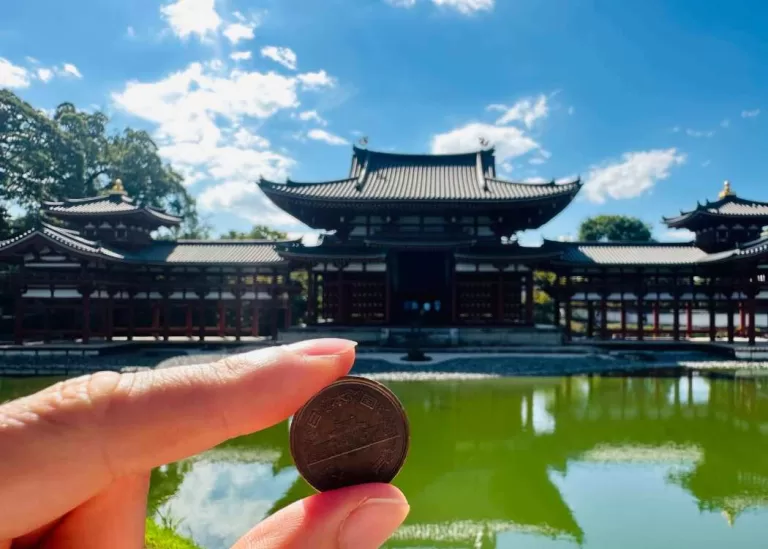Shinjuku or Shibuya: A Tokyo Insider’s Comparison (2024)
Wondering whether Shinjuku or Shibuya is the right place for you to stay in Tokyo? I’ve spent a considerable amount of time in both areas – working in Shinjuku and often passing through Shibuya – and I’m eager to share my observations with you.
My experiences have given me a unique view into the qualities of each district, from their morning ambiance to their nightlife. My aim is to give you a clearer picture of what Shinjuku and Shibuya are like, so you can decide which one feels more like your kind of place for your Tokyo adventure.
Some of the links on this site are affiliate links, which means a commission may be earned if a purchase is made through them. This comes at no additional cost to you. These links are provided to enhance the travel experiences shared on this site. The support provided through these links helps to maintain the site.
If you don’t have time to read, here is the comparison of Shinjuku and Shibuya in a nutshell:
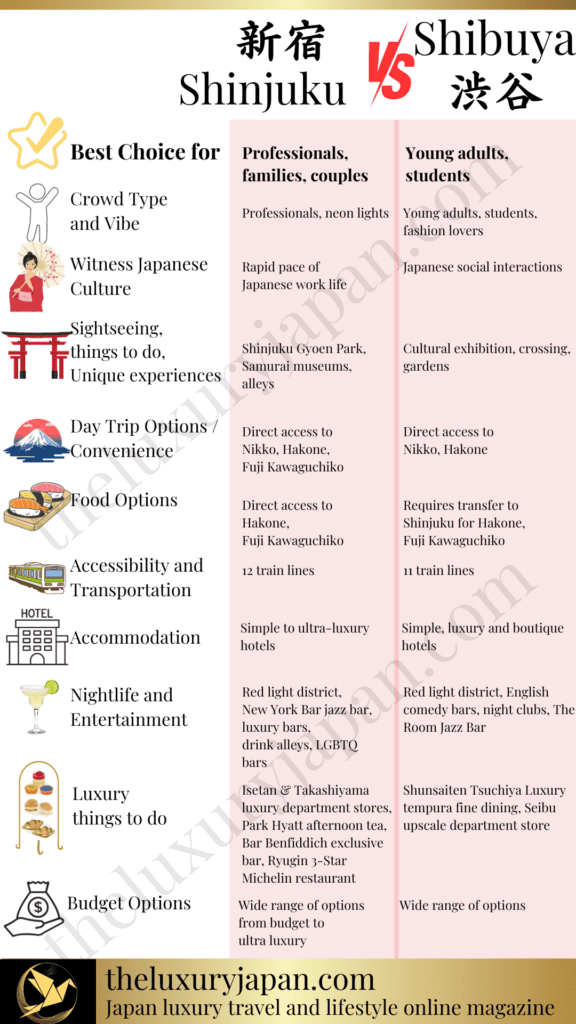
Shinjuku, with its towering skyscrapers and bustling streets, offers a vibrant mix of business and entertainment. It’s a place where you can find some of Tokyo’s most iconic landmarks and shopping areas. It is better to stay in Shinjuku if you are looking for a more formal/business atmosphere – perfect for working professionals (traveling as a couple or solo). Although staying as a family is better in Ginza than Shinjuku, compared to Shibuya, Shinjuku is a better place to stay as a family.
For hotels, my personal favorite hotel in Shinjuku is Park Hyatt Tokyo – one of the most luxurious hotels in Tokyo, although could be a quite walk from and to Shinjuku Station. Please note that Park Hyatt will close from May 7 2024 and will re-open in autumn in 2025 according to their website’s news.
For more affordable yet very decent hotel options, then I (and most of my friends who visit Tokyo) suggest to stay at either Hotel Sunroute Plaza Shinjuku or JR Kyushu Hotel Blossom Shinjuku. These are the two most affordable and most decent hotels that are walkable to the train station.
On the other hand, Shibuya is famous for its youthful energy and fashion-forward trends. It’s a district that never seems to sleep, filled with endless dining and shopping options. Whether you’re looking for a lively night out or a cultural day trip, Shibuya is better to stay in than Shinjuku for young adults and for fans of Japanese culture.
Luxury and boutique hotels in Shibuya are quite good, like Cerulean Tower Tokyu Hotel. I also personally love the restaurants they have in the hotel.
Although the two places are only 15-minute away from each other by train (for around 170 JPY or $1), In this article, I will compare both Shinjuku and Shibuya in terms of 10 aspects: crowd type and vibe, Japanese culture, sightseeing, day trip options, food options, accessibility, accommodations, nightlife, luxury things to do, and budget considerations.
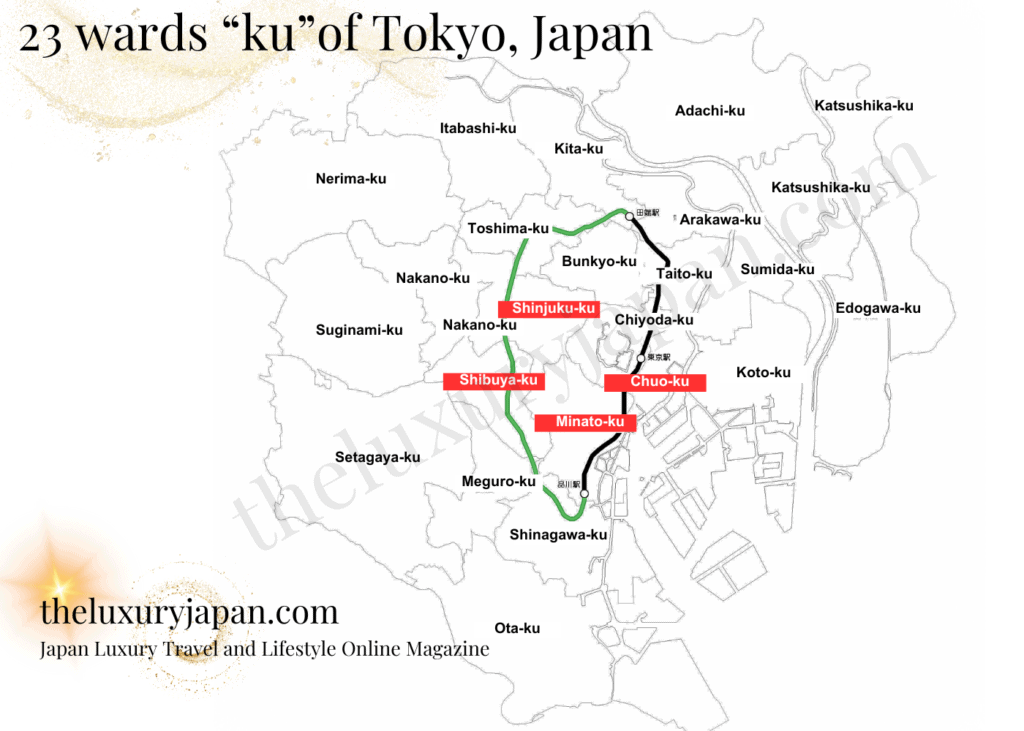
Table of Contents
Crowd Type and Vibe
Shinjuku: Neon Lights, Business Hubs, and Green Spaces
Shinjuku is a vibrant mix of dazzling neon lights, bustling business areas, and serene parks. This district is a lively blend of Tokyo’s modernity and nature, where sleek skyscrapers share the skyline with tranquil green spaces.
As a professional working in Shinjuku, I recommend this area to witness the fast-paced life of businessmen and women during the day and explore illuminated streets by night.

Shibuya: Youth, Iconic Crossing, Trendsetting Fashion, and Dynamic Energy
Shibuya is synonymous with its famous crossing, a bustling hub of activity that epitomizes the city’s dynamic pulse. Known as a trendsetter in fashion, this district attracts a crowd that’s always on the lookout for the latest styles.
Shibuya is the place I would often go to when I was still in high school – the energy here is palpable, fueled by the constant flow of people and the vibrant, youthful spirit that defines the area.
Crowd Type/Vibe Winner: Tie
If you are torn between Shinjuku or Shibuya, remember that Shinjuku offers a blend of business and modernity, while Shibuya is known for its youthful energy and fashion-forward trends. The choice depends on personal preference for either a bustling business vibe or a dynamic, youthful atmosphere.
Witnessing Japanese Culture
In Shinjuku, the rapid pace of life is evident in the bustling movements of salarymen and office workers, a reflection of Japan’s work culture. This district also offers glimpses of traditional Japanese dining customs in its many izakayas.
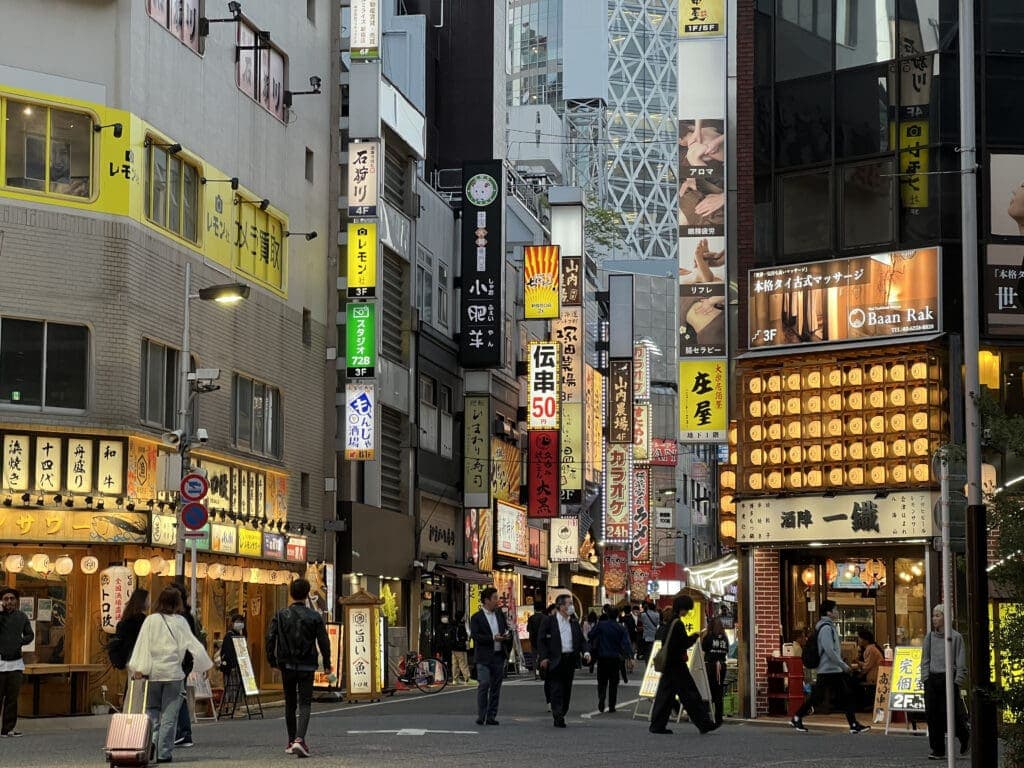
Meanwhile, Shibuya, particularly in areas like Harajuku, showcases the latest in youth fashion, blending modern trends with traditional Japanese elements. The social interactions here, especially among younger crowds, highlight the importance of harmony in Japanese culture.
Both districts, in their unique ways, provide a vivid snapshot of Tokyo’s diverse urban life.
Witnessing Japanese Culture Winner: Tie
Shinjuku reflects Japan’s work culture and traditional dining, whereas Shibuya showcases youth fashion and modern trends. Both provide unique insights into Japanese culture.
Sightseeing, Things to do, and Unique Experiences
Shinjuku is a district where traditional charm meets modern excitement, offering a range of activities:
- Shinjuku Gyoen National Garden: A peaceful retreat amidst the city’s hustle, perfect for a leisurely walk or a picnic.
- Samurai Museum: Dive into Japan’s warrior history with exhibits and samurai armor demonstrations.
- Shinjuku Golden Gai: Explore this network of alleys known for its tiny bars, each with a unique theme and atmosphere.
- VR Zone Shinjuku: Experience cutting-edge virtual reality games and simulations.
- Tokyo Metropolitan Government Building: Visit the observation decks for panoramic views of Tokyo, especially stunning at night.
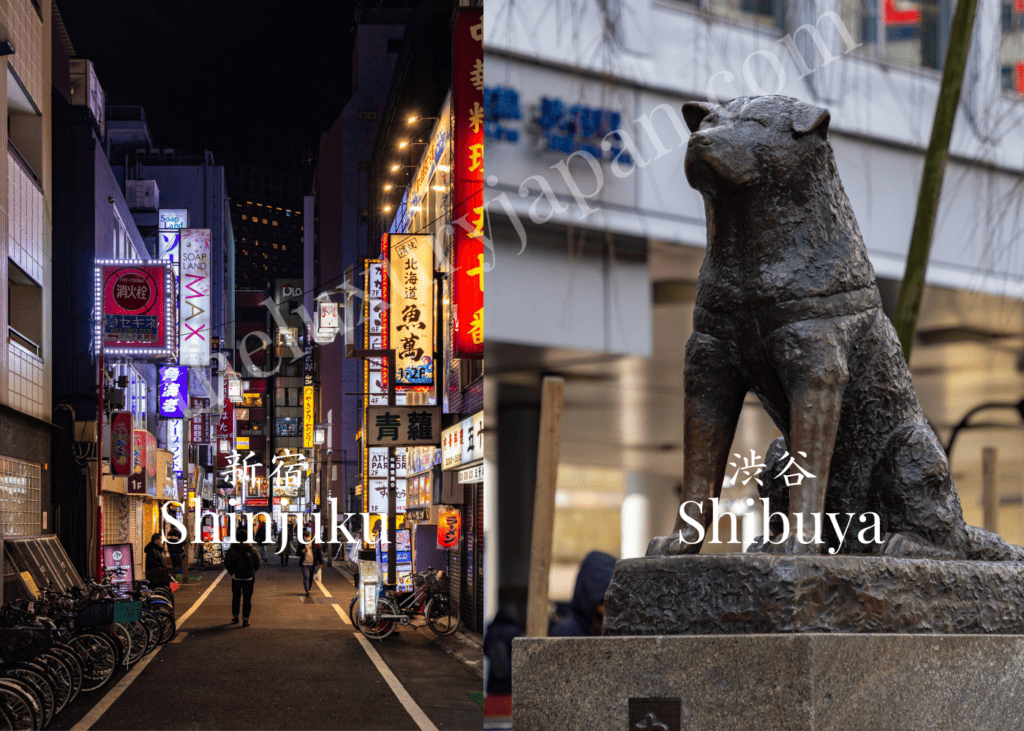
Shibuya is the heart of Tokyo’s youth culture, buzzing with energy and offering unique experiences:
- Shibuya Crossing: Witness the iconic scramble crossing, a symbol of Tokyo’s fast-paced life.
- Shibuya Sky: Get a bird’s-eye view of the city from this spectacular observation area.
- Harajuku’s Trendy Boutiques: Explore the epicenter of youth fashion and subcultures in Tokyo.
- Bunkamura: Visit this cultural complex for art exhibitions, theater, and music performances.
- Yoyogi Park: A popular spot for relaxation and outdoor activities, especially beautiful during cherry blossom season.
- Animal Cafes: Enjoy a unique cafe experience with various animals, a quirky aspect of Tokyo’s cafe culture.
Sightseeings, Things to do, and Unique Experiences Winner: Tie
Shinjuku offers traditional charm and modern excitement with places like Shinjuku Gyoen and Samurai Museum. Shibuya is the heart of youth culture with attractions like Shibuya Crossing and Harajuku. The choice depends on whether one prefers historical and serene experiences or vibrant and trendy explorations.
Day Trip Options and Convenience
From Shinjuku, travelers can easily reach several appealing destinations. Nikko, a blend of history and nature, is about two hours away via JR or Tobu lines. Hakone, famous for hot springs and Mount Fuji views, is also a two-hour journey on the Odakyu line. Kawaguchiko, offering stunning Fuji scenery, is accessible by bus in roughly two and a half hours. For a quicker trip, Kamakura’s historical sites and Yokohama’s urban attractions are both under an hour by train. Beach enthusiasts can reach Enoshima and Shonan Beach in about an hour on the Odakyu Line.
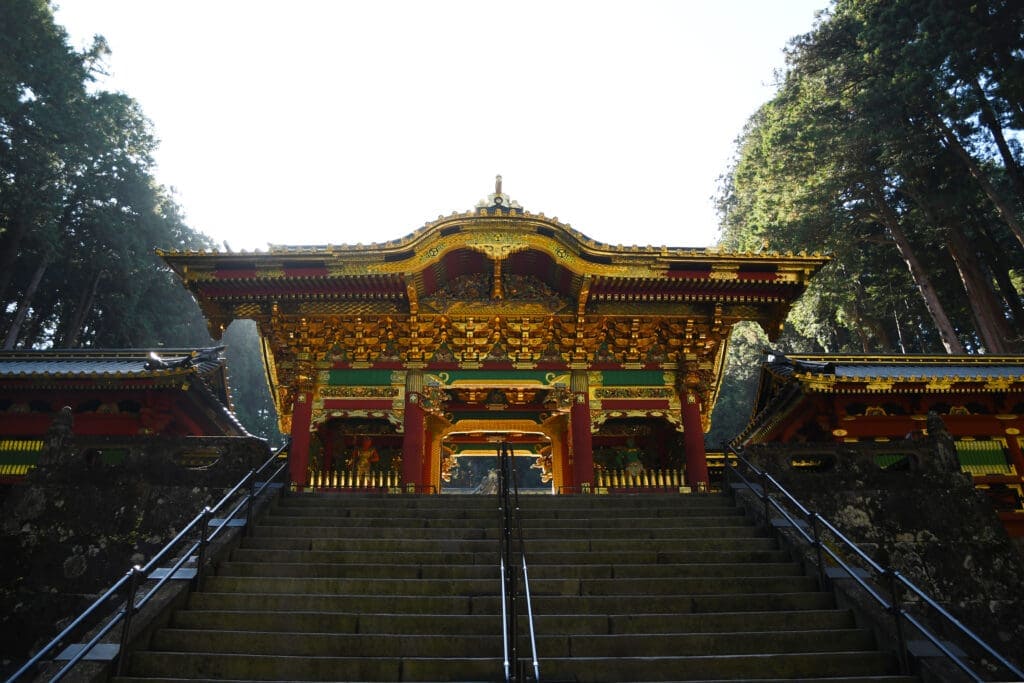
Shibuya Station is a convenient starting point for various day trips. Nikko, with its rich heritage, is reachable in two and a half hours via JR lines. Hakone, for hot springs and scenic views, requires a similar travel time with a transfer at Odawara. Kawaguchiko, a bit further, is about three hours away, combining train and bus travel. Kamakura, offering a glimpse of ancient Japan, and Yokohama, a modern coastal city, are both just a 30-minute train ride away. The beaches of Enoshima and Shonan are also an hour’s journey via JR lines.

Day Trip Options and Convenience Winner: Shinjuku
While both districts provide access to major day trip destinations around Tokyo, Shinjuku edges out slightly due to its slightly better connectivity and shorter travel times for certain destinations. The presence of the world’s busiest railway station in Shinjuku, with more train lines, makes it a more versatile hub for exploring the surrounding areas. However, the difference is marginal, and Shibuya also offers excellent connectivity and convenience for day trips.
If I were a traveler visiting Japan, I would definitely choose Shinjuku if I would have day trips especially to Fuji Kawaguchiko (the area where you can find mount fuji), as well as Hakone.
Food Options
Shinjuku: A Culinary Journey From high-end restaurants in skyscrapers to tiny izakayas (Japanese pubs) tucked in alleyways, Shinjuku’s culinary scene is as diverse as its crowd. Don’t miss the chance to try some of Tokyo’s best ramen and sushi in this district.
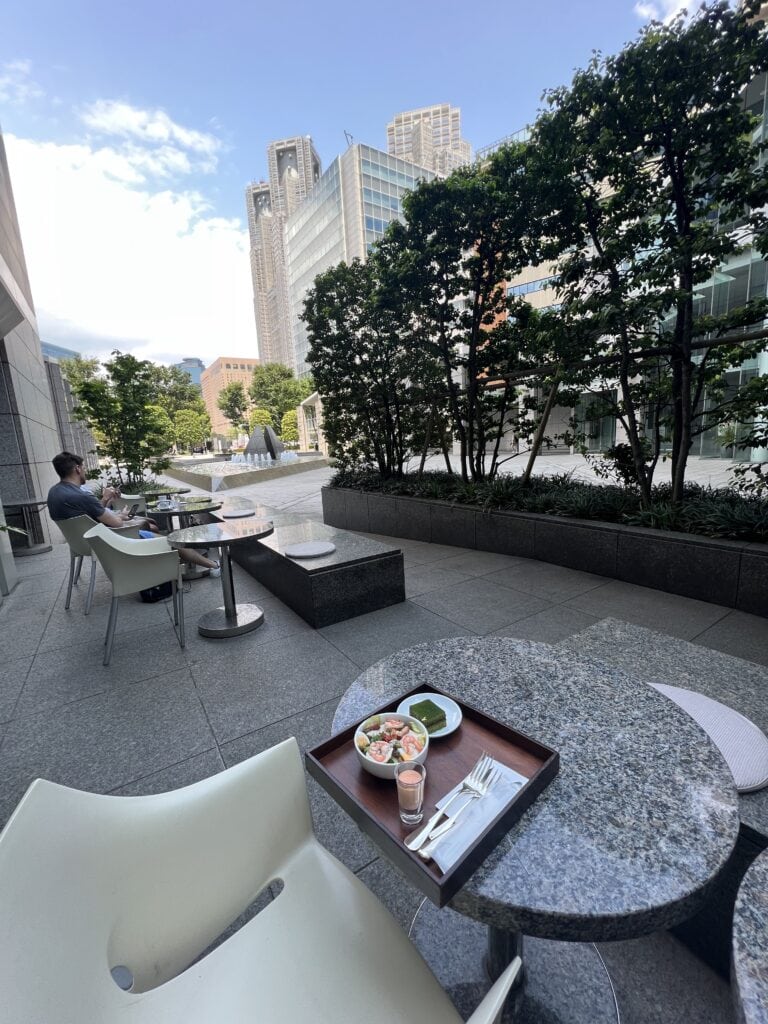
Shibuya: The Flavor of Youth Shibuya’s food landscape caters to its younger demographic with trendy cafes, budget-friendly eateries, and international cuisine. The area is also famous for its unique themed cafes, which offer not just a meal but an experience.
Food Winner: Shibuya
While Shinjuku has a diverse culinary scene, Shibuya’s trendy cafes and themed experiences cater more to a younger demographic and offer a more varied and modern dining experience.
Accessibility and Transportation
Shinjuku is renowned for its exceptional connectivity, with Shinjuku Station holding the title of the world’s busiest railway station. In fact, Shinjuku has 11 train lines (and also the world’s busiest train station) that link to various parts of Tokyo and beyond, offering numerous train lines, including the JR Yamanote Line. While its vastness and bustling crowds can be initially daunting for newcomers, navigating becomes easier with a bit of experience.
The station’s comprehensive network makes it an ideal starting point for exploring not only Shinjuku but also other key areas of Tokyo. However, please note that even locals (including myself!) are often very confused and still get lost in Shinjuku Station.
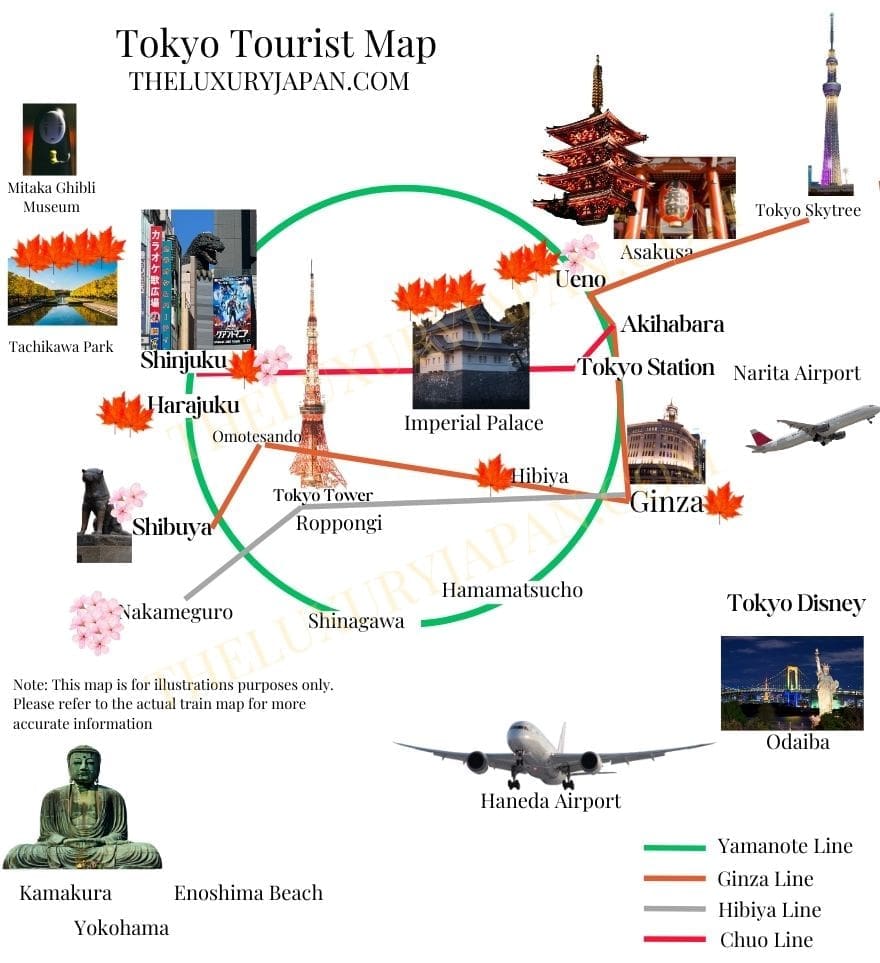
Shibuya, while slightly less overwhelming than Shinjuku, is no less efficient in terms of transportation. Shibuya Station has 10 train lines, only 1-point away from Shinjuku.
Compared to Shinjuku, I personally find that Shibuya Station’s layout is more user-friendly, making it a convenient gateway for exploring the rest of Tokyo’s many attractions.
Accessibility and Transportation Winner: Shinjuku
Shinjuku, with the world’s busiest railway station and 11 train lines, offers slightly better connectivity and accessibility compared to Shibuya.
Accommodation Options
Shinjuku: From Luxury to Budget Shinjuku offers a wide range of accommodation options. You can find luxury hotels with stunning city views, business hotels, and budget-friendly hostels. The area caters to all types of travelers.
My personal favorite hotel in Shinjuku is Park Hyatt Tokyo which has a good touch of luxury – highly recommended for couples who are celebrating anniversaries or honeymoon. Please note that Park Hyatt will close from May 7 2024 and will re-open in autumn in 2025 according to their website’s news.
For travelers searching for hotels that have close proximity to Shinjuku Station, Hotel Sunroute Plaza Shinjuku or JR Kyushu Hotel would be the best options. These are the two most affordable and most decent hotels that are near to the train station.
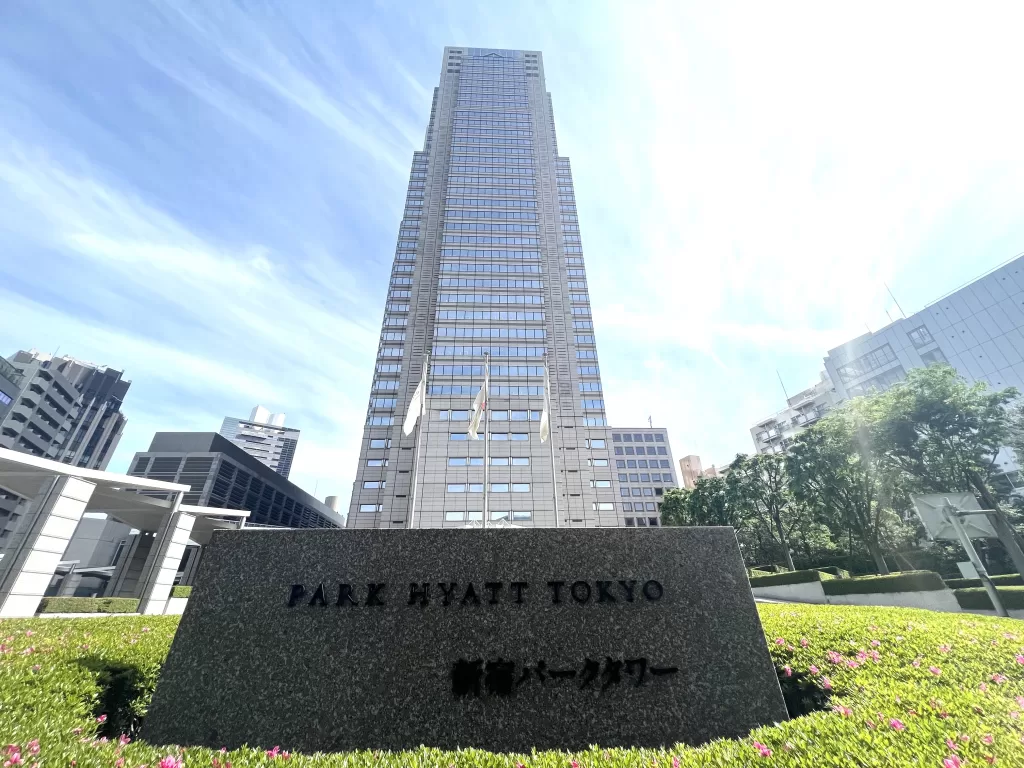
Shibuya: Trendy and Convenient Stays Shibuya’s accommodations are as trendy as the district itself. Boutique hotels, youth hostels, and mid-range options are plentiful, offering easy access to the district’s main attractions.
My personal favorite is Cerulean Tower Tokyu Hotel which has a good touch of luxury but still quite affordable. For cheaper option, Hotel Mets Shibuya is the most decent choice that is still walkable to Shibuya Station.
Accommodation Options Winner: Shinjuku
Both districts offer a range of accommodations from luxury to budget. Shinjuku caters to all traveler types, while Shibuya offers trendy and convenient stays.
Personally, I would prefer going staying in Ginza over Shinjuku but if the choice is only Shinjuku or Shibuya, I would choose Shinjuku. For young adults, I recommend Shibuya.
Nightlife and Entertainment
Shinjuku: Neon Nights and Diverse Entertainment Shinjuku’s nightlife is legendary. The district’s Kabukicho area is known as Tokyo’s entertainment and red-light district, offering everything from karaoke bars to nightclubs.
For foreign visitors, bars like the Golden Gai’s Albatross and Omoide Yokocho’s tiny yakitori joints are must-visits for their unique atmospheres and friendly vibe. Shinjuku’s diverse nightlife, from high-energy clubs to cozy bars, makes it a favorite for both locals and tourists.
Shinjuku’s nightlife offers a diverse array of entertainment choices. For those interested in comedy, the Tokyo Comedy Bar presents English-language stand-up shows that are popular among both locals and foreigners

Shibuya’s nightlife is synonymous with youth and trendiness. The area around Shibuya Crossing buzzes with a plethora of bars and clubs, like the popular Gaspanic and Womb, known for their lively atmospheres and appeal to a younger, international crowd.
Live music venues and trendy bars, such as The Room, offer a taste of Tokyo’s contemporary music scene. Shibuya’s energetic nightlife scene is a draw for those looking to experience Tokyo’s modern and dynamic side.
In Shibuya, the nightlife is not just about bars and clubs. The district is also known for its live entertainment venues. The famous Shibuya Comedy Club is a great spot to catch some stand-up comedy, often featuring bilingual performances.
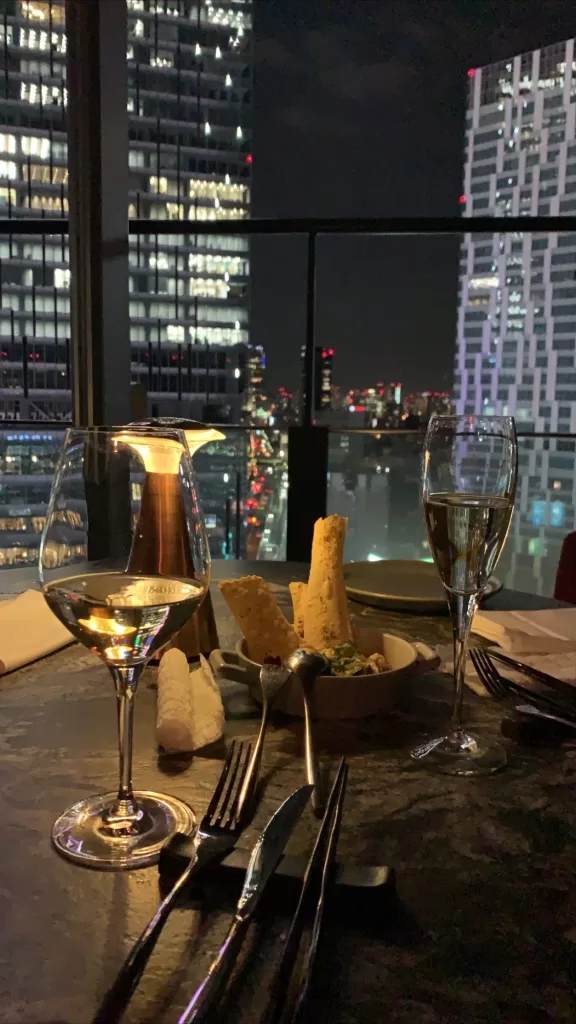
Music lovers can enjoy a night at venues like The Room, which hosts a variety of live music events, from jazz to modern electronic. For a unique experience, visitors can head to Love Hotel Hill for its quirky themed rooms, offering a glimpse into one of Japan’s more unusual entertainment options.
Nightlife and Entertainment Winner: Shinjuku
Shinjuku is known for its diverse entertainment and legendary nightlife, while Shibuya offers a youthful and trendy nightlife scene. The choice depends on personal preference for either a diverse, energetic nightlife or a modern, youthful party scene.
Luxury Things to do
Shinjuku: Sophisticated Luxury
- Dining: The district boasts a range of upscale dining options. From high-end sushi bars to Michelin-starred restaurants, Shinjuku caters to those seeking a sophisticated culinary experience. The area is also known for its exclusive izakayas and rooftop bars, offering a blend of luxury and traditional Japanese dining.
- Shopping: Shinjuku features several luxury department stores and boutiques, offering high-end fashion brands, designer goods, and exclusive Japanese crafts. The area’s shopping scene is diverse, ranging from the latest fashion trends to traditional Japanese artifacts.
- Ambiance: The district’s blend of modern skyscrapers and bustling streets creates a sophisticated urban atmosphere. The luxury experience in Shinjuku is often characterized by its dynamic energy and modernity.

Shibuya: Trendy and Modern Luxury
- Dining: Shibuya offers a variety of trendy and upscale dining options. The district is a hotspot for avant-garde cuisine, fusion restaurants, and chic cafes, appealing to a younger, more fashion-forward crowd.
- Shopping: Known for its trendsetting fashion scene, Shibuya is a paradise for those looking for luxury in contemporary and street fashion. The district is filled with high-end boutiques, designer stores, and exclusive pop-up shops that reflect the latest trends in fashion and lifestyle.
- Ambiance: Shibuya’s luxury experience is intertwined with its youthful and energetic atmosphere. The district’s luxury is more about experiencing the cutting edge of urban culture and fashion trends.
Luxury Things to do Winner: Shinjuku
Shinjuku offers a more traditional and sophisticated form of luxury, appealing to those who appreciate a blend of modernity with upscale amenities and services. Shibuya caters to a more modern, trendy luxury, appealing to those who seek contemporary design, fashion-forward trends, and a vibrant urban experience.
Shinjuku also has a two of the 9 most luxurious shopping malls in Tokyo, which are Isetan and Takashimaya.
Both Shinjuku and Shibuya are close to Minato-ku, the wealthiest neighborhood in Tokyo, which is a must-visit when you are in Tokyo.
Budget Considerations
Shinjuku offers a wide range of options to suit various budgets. For those looking to save, there are numerous affordable eateries, particularly around the areas of Omoide Yokocho and Golden Gai, where small stalls and bars offer reasonably priced food and drinks. Budget-friendly accommodation options are also available, including hostels and business hotels. However, for those willing to splurge, Shinjuku has its share of upscale restaurants and bars, as well as luxury hotels. Shopping in Shinjuku can cater to all budgets too, from discount electronic stores to high-end department stores.
Shibuya is similarly accommodating to varying budgets. The district is known for its reasonably priced fashion boutiques and thrift stores, particularly in the Harajuku area, making it a great spot for budget-conscious shoppers. Dining in Shibuya can range from inexpensive conveyor belt sushi and ramen shops to more upscale dining experiences. Accommodation options vary widely, with budget hostels and guesthouses available, as well as more luxurious hotel offerings. Nightlife in Shibuya can be budget-friendly too, with many bars and clubs having nominal entry fees or drink specials.
Budget Options Winner: Shibuya
Both the areas cater to various budgets, offering options from affordable to luxury in terms of dining, accommodation, and shopping. However, when deciding whether to stay in Shinjuku or Shibuya for budget, Shibuya would have a slight advantage for cheaper options.
Wrap Up
Having experienced both districts extensively, I can attest that each has its unique appeal.
If you’re drawn to a lively mix of business, entertainment, and green spaces, and wish to experience Tokyo’s iconic landmarks and shopping areas, Shinjuku is your go-to destination. It’s perfect for those who enjoy the hustle of a busy city and the charm of serene parks.
Conversely, if you’re captivated by the idea of a district that’s always buzzing with activity, where fashion and trends take center stage, Shibuya will not disappoint. It’s ideal for those seeking a youthful vibe, endless dining options, and a taste of Tokyo’s trendsetting culture.
In summary, deciding between Shinjuku or Shibuya should align with your personal preferences and what you wish to experience in Tokyo. Whether it’s the vibrant energy of Shinjuku or the dynamic pulse of Shibuya, each district offers a unique and unforgettable Tokyo adventure.
